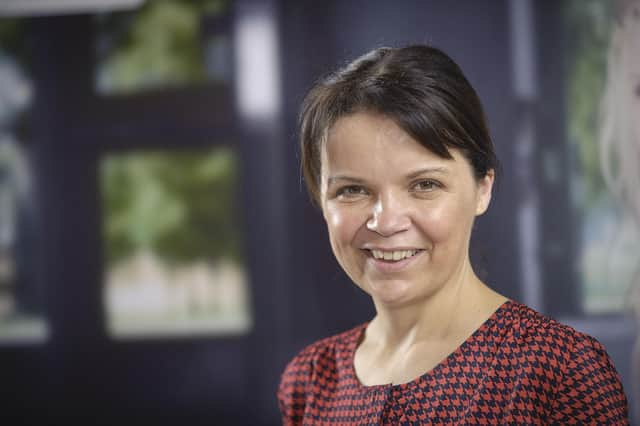Ulster University awarded £80k by Longitude Prize on Dementia for AI model that will detect, prevent, and monitor agitation in people living with dementia


The university has been awarded one of 24 Discovery Award grants, worth £80k, as part of the £4m Longitude Prize on Dementia.
A total of £1.9m has been awarded to 24 pioneering teams of developers, researchers, and innovators from across the globe in the international challenge competition funded by Alzheimer’s Society and Innovate UK and designed and delivered by Challenge Works.
Advertisement
Hide AdAdvertisement
Hide AdThe team will now work alongside people living with dementia and their carers to ensure technologies are intuitive, easy-to-use, and able to adapt to their changing needs.
In collaboration with the Northern Health and Social Care Trust (NHSCT) and Age NI, CLEAR-AI is an intelligent platform that will be co-designed by people living with dementia and their carers, to help better understand behaviour through from diagnosis to post-diagnosis support.
It aims to empower people living with dementia, and to help them maintain independence in their daily lives, decisions, social interactions, and activities.
Team members include Professor Joan Condell, Professor Gerry Leavey and Dr Ruth Price from Ulster University, Soo-Hun from Public Health Agency (PHA), Siobhan Casey from Age NI and Dr Frances Duffy from NHSCT.
Advertisement
Hide AdAdvertisement
Hide AdProfessor Joan Condell, Ulster University said: “We will co-create with those living with dementia, both carers and those being cared for.
"This is an exciting collaboration with the Northern Health and Social Care Trust and Age NI, helping to understand behaviour through CLEAR-AI, through from diagnosis to post-diagnosis support, helping people living with dementia live independent, in their own homes, more fulfilled lives doing what they enjoy.”
Kate Lee, ceo, Alzheimer’s Society, added: “It’s vital people with dementia are able to live independently, doing things that bring them fulfilment, for as long as possible. And that’s exactly what tech innovation can provide.
"Today’s Discovery Award winners all have the capacity to develop cutting-edge tools that bring hope to the here and now, making a tangible difference to people’s lives.
Advertisement
Hide AdAdvertisement
Hide Ad"New drugs have been discovered which slow the progression of early Alzheimer’s disease, but there’s still more to do.
"Alzheimer’s Society remains committed to innovative projects like the Longitude Prize so that together we can improve the lives of people living with dementia and their families.”
The Longitude Prize on Dementia is driving the development of personalised, technology-based tools that are co-created with people living with the early stages of dementia.
It aims to help them live independent, more fulfilled lives and enable them to do the things they enjoy.
The competition itself has also been co-designed with people living with dementia.
Judges were advised in their decision making by the prizes Lived Experience Advisory Panel (LEAP).